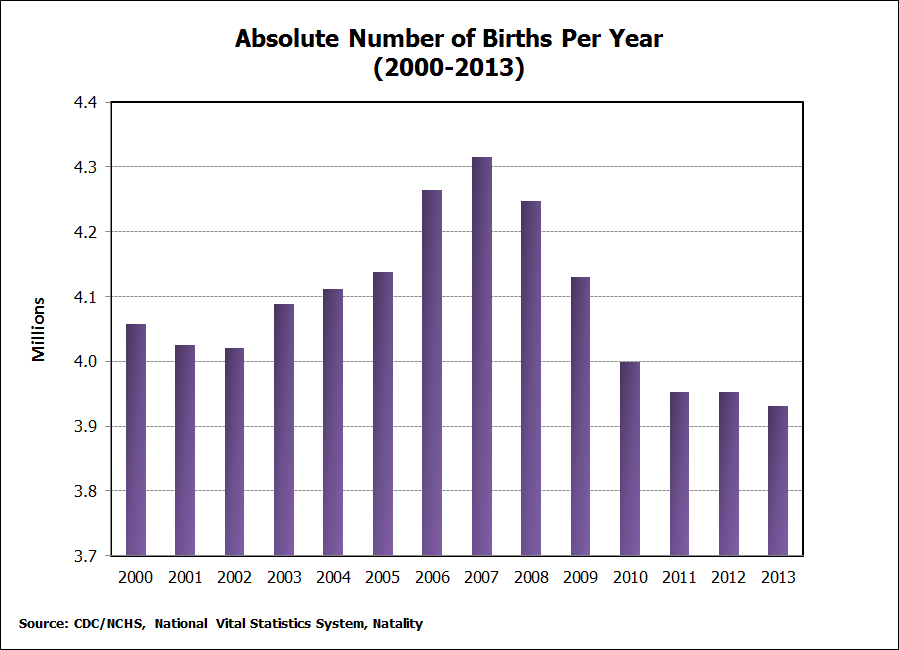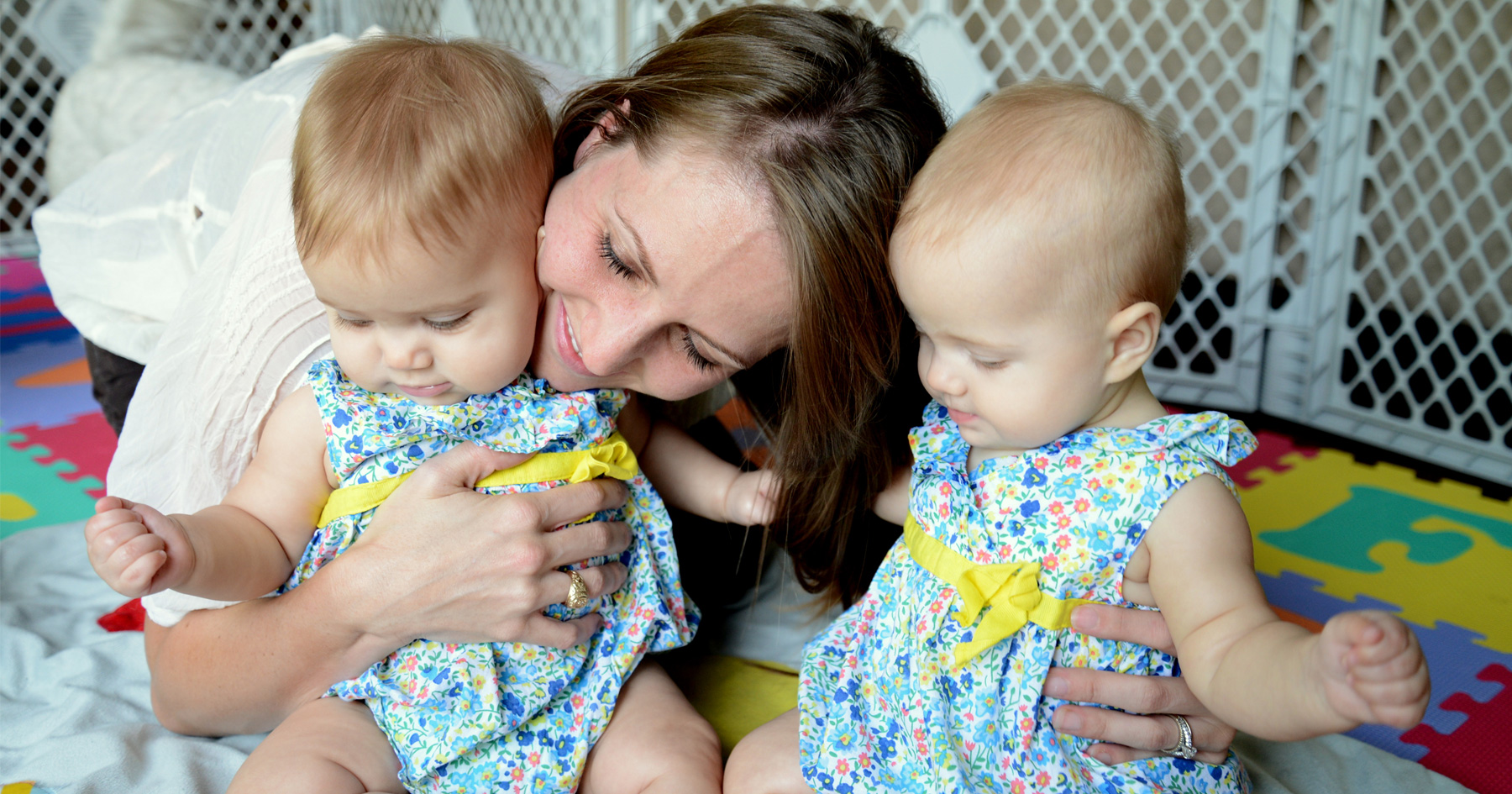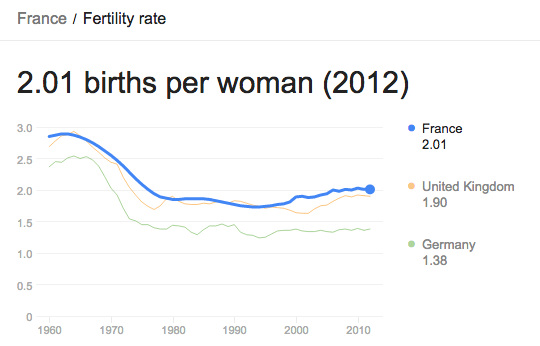Why America Wants You to Have More Babies

By:
America really needs you to have a baby.
The birth rate in the U.S. is steadily declining, raising concerns about how the generation will be able to support older generations who reach retirement age. As it stands, the fertility rate (a number that represents the number of babies born to each woman on average) in America is 1.87, down from 2.12 in 2007.
 Forbes - forbes.com
Forbes - forbes.com
For most of American history, the birth rate hasn't posed much of a concern, The Wall Street Journal reported. A steady influx of immigrants from countries where families tend to be larger — in addition to above-average teen pregnancy rates — has enabled the U.S. to stay ahead of the fertility curve, producing more children than industrialized countries such as Germany and the United Kingdom.
Now that's changing, The Week reported:
"The birth rate among U.S.-born women fell by 6 percent in the first years of the recession — but among immigrants it fell by 14 percent. What's more, birth rates in immigrants' origin countries, particularly Mexico, have also been falling for years. Teen pregnancies have also been trending sharply down for years; falling by roughly two-thirds among all racial groups since 1990."
There are pros and cons to lower birth rates.
Countries tend to encourage families to have more children in order to effectively replace the aging workforce and contribute revenue in the form of taxes. While some are worried that declining fertility rates in America threaten to destabilize the economy, creating a generational void in the workforce, some experts believe that a modestly low birth rate could boost economies in countries such as the United States, CBS News reported.
"Higher fertility imposes large costs on families, because it is they, rather than governments, that bear most of the costs of raising children," University of California, Berkeley demographer Ronald Lee, who wrote a 2014 study in the journal Science about the benefits of a reduced birth rate, wrote in a press release. "Also, a growing labor force has to be provided with costly capital, such as factories, office buildings, transportation and housing."
Lee proposed that governments shift away from encouraging families to have more children and toward supporting policies that "accommodate inevitable population aging."
That's one possible solution to America's birth rate problem, but it's not the only proposal.
 Flickr/Donnie Ray Jones - flic.kr
Flickr/Donnie Ray Jones - flic.kr
In an effort to boost fertility rates in Japan and South Korea, the countries sent delegates to France, which has consistently maintained a high birth rate, The Guardian reported. France's birth rate currently sits at a comfortable 2.01, and experts believe that has to do with the fact that France supports family-friendly policies, such as 16-week paid maternity leave and other government benefits for families with children.
 Google - google.com
Google - google.com
If America wants to increase its fertility rate, there's an argument to be made that it ought to offer financial incentives, including tax breaks. Such added incentives drove massive population growth in France in the 1930s, and Scandinavian countries have seen similar results from pro-family policies.
There's one more lesson to be learned from France.
 Flickr/alecea - flic.kr
Flickr/alecea - flic.kr
There appears to be a correlation between high birth rates and countries where women are well-represented in the workplace (such as France, which has an 84 percent employment rate for women aged 24 to 54.) This linkage suggests that high fertility is more likely in a gender-equal society.
"Up to the end of the 1980s, the countries with a high fertility were, on the contrary, the ones where women didn’t usually go out to work," demographer Olivier Thévenon told The Guardian. "In those days, building a family was the priority: Women would get married, have children, bring them up and then, if they had the inclination and any spare time, they might enter the job market."
"The picture is quite the opposite now: A job is no longer a hindrance to child-bearing; indeed, it has actually become one of the preconditions," Thévenon added.
